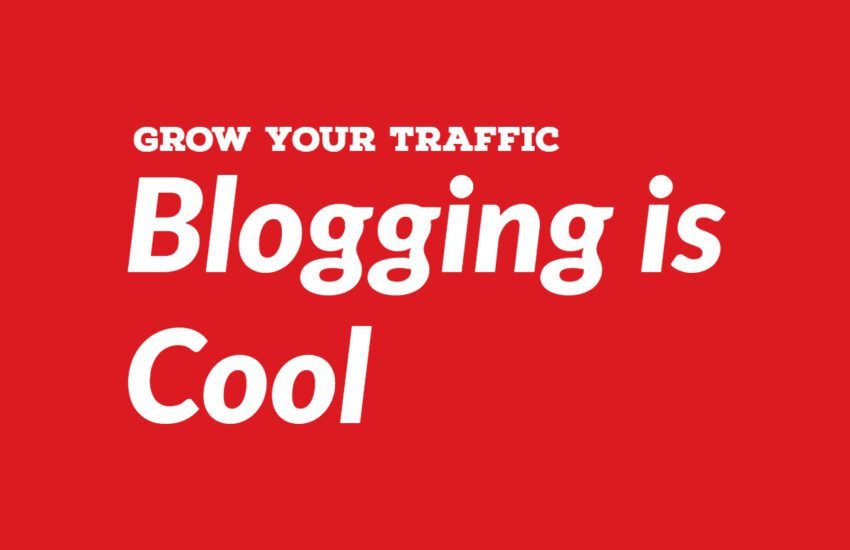20 popular platforms for blogging
The article explores 20 diverse blogging platforms, including WordPress, Medium, and Dev.to, catering to various needs and audiences.
It delves into their features, advantages, and suitability for beginners, developers, and businesses.
Additionally, it addresses common questions on topics like SEO, monetization, and platform selection, offering comprehensive insights for aspiring bloggers.
- The Importance of Finding the Right Blogging Platform
- 20 Popular Blogging Platforms
- Conclusion
- Frequently Asked Questions
- 1. What is the best platform for beginners to start a blog?
- 2. What are the advantages of using a self-hosted platform like WordPress.org compared to hosted platforms like WordPress.com?
- 3. Are there blogging platforms specifically tailored for developers and technical users?
- 4. Which platform is best for monetizing a blog and generating income?
- 5. What blogging platform offers the best SEO (Search Engine Optimization) capabilities?
- 6. Can I migrate my blog from one platform to another without losing content or SEO ranking?
- 7. Which platform is best for collaborative blogging or managing multiple authors?
- 8. Are there blogging platforms that integrate seamlessly with social media for content promotion?
- 9. Which platform offers the best analytics and insights for tracking blog performance?
- 10. How do I choose the right blogging platform for my specific needs and goals?
The Importance of Finding the Right Blogging Platform
In the digital landscape of today, blogging stands as one of the most influential mediums for sharing ideas, expertise, and stories with the world.
Whether you’re an aspiring writer, a seasoned professional, or a business looking to engage with your audience, finding the right blogging platform is paramount to your success. With a plethora of options available, each boasting unique features and functionalities, navigating the vast terrain of blogging software can feel daunting.
In this comprehensive guide, we’ll explore 20 diverse blogging platforms, shedding light on their key attributes, target audiences, and standout features.
From industry giants like WordPress and Blogger to specialized platforms tailored for developers like Dev.to and technical users like Hugo, there’s a platform suited for every niche and purpose.
As we delve deeper, we’ll uncover platforms like Squarespace, Wix, and Weebly, which blend blogging with website building, offering a seamless experience for individuals and businesses alike.
Furthermore, open-source CMS solutions like Joomla and Drupal provide unparalleled flexibility and scalability for those with more advanced technical requirements.
Beyond traditional blogging platforms, we’ll explore innovative solutions such as Substack, HubSpot, and Bolt CMS, each catering to specific niches and industries with their unique offerings.
20 Popular Blogging Platforms
Whether you’re a wordsmith, a developer, or a marketer, this guide aims to equip you with the knowledge needed to navigate the diverse landscape of blogging software and find the perfect platform to bring your ideas to life. Join us on this journey as we uncover the myriad possibilities awaiting in the world of blogging
1. WordPress
One of the most widely used blogging platforms, offering customizable themes, plugins, and a user-friendly interface.
At the forefront of our exploration is WordPress, a powerhouse in the blogging sphere renowned for its versatility and user-friendly interface.
With customizable themes, extensive plugin library, and a robust community, WordPress empowers bloggers of all levels to create stunning websites and share their content with the world.
2. Blogger
A free blogging platform owned by Google, offering easy integration with other Google services and simple customization options.
For those seeking simplicity and seamless integration with Google services, Blogger emerges as a compelling choice, offering a straightforward platform for novice bloggers to get started.
3. Medium
A platform for writers to publish articles and stories, with a clean and minimalistic design focused on content. Meanwhile, Medium captivates with its minimalist design and focus on storytelling, attracting writers keen on reaching a broader audience with their narratives.
4. Ghost
Known for its sleek and modern interface, Ghost is a platform designed specifically for professional bloggers and publishers. Ghost emerges as a beacon for professional bloggers and publishers, boasting a sleek interface and advanced features tailored for content creators.
5. Tumblr
A microblogging platform that allows users to post multimedia content easily, including text, images, videos, and GIFs. On the microblogging front, Tumblr remains a beloved platform for its effortless sharing of multimedia content, from text and images to videos and GIFs.
6. Squarespace
A website builder that includes blogging functionality, offering beautiful templates and customizable design options.
7. Wix
Another website builder with blogging capabilities, featuring a drag-and-drop editor and a wide range of templates.
8. Weebly
A user-friendly website builder with blogging features, suitable for beginners and small businesses.
9. Joomla
An open-source content management system (CMS) with blogging capabilities, offering flexibility and extensibility for advanced users.
10. Drupal
Another open-source CMS with blogging functionality, known for its robustness and scalability for larger websites and organizations.
11. Typepad
A blogging platform targeted towards professional bloggers and businesses, offering customizable templates and built-in analytics.
12. Jekyll
A static site generator suitable for developers and technical users, allowing for fast and secure blogs with simple version control.
13. Hugo
Another static site generator focused on speed and flexibility, suitable for creating blogs and websites with minimal overhead.
14. Substack
A platform that enables writers to start their own newsletters and blogs, with built-in subscription and payment options.
15. WordPress.com
The hosted version of WordPress, offering a simplified setup and management process for bloggers who prefer not to deal with hosting.
16. Dev.to
A community platform for developers to share knowledge and experiences through blogging, with a focus on technical content.
17. HubSpot
A marketing platform that includes blogging functionality, offering tools for content creation, SEO optimization, and lead generation.
18. Bolt CMS
An open-source CMS suitable for creating blogs and websites, featuring a lightweight and flexible architecture.
19. Gatsby
A modern static site generator built on React.js, offering high performance and advanced features for building dynamic blogs and websites.
20. Joomla
Another open-source CMS with blogging capabilities, offering flexibility and extensibility for advanced users.
Each of these platforms has its own unique features and target audience, so it’s important to choose one that aligns with your specific needs and goals for blogging.
Conclusion
The landscape of blogging software is as diverse and dynamic as the voices it amplifies.
Throughout this exploration, we’ve traversed a rich tapestry of platforms, each offering its own blend of features, functionalities, and target audiences.
From the ubiquitous presence of WordPress to the niche appeal of specialized solutions like Dev.to and Hugo, the realm of blogging encompasses a spectrum of options to suit every need and aspiration.
At the core of this journey lies the essence of expression and connectivity.
Whether you’re a budding writer seeking to carve out your digital space or a business aiming to engage with your audience, the right blogging platform serves as a conduit for your ideas to resonate with the world. WordPress, with its unparalleled versatility and robust community, remains a stalwart choice for creators of all stripes, empowering them to build immersive online experiences with ease.
Yet, as we’ve discovered, the realm of blogging extends far beyond the confines of a single platform.
From the simplicity of Blogger to the elegance of Medium and the professionalism of Ghost, each platform beckons with its own allure, beckoning creators to unleash their creativity and forge meaningful connections with their audience.
Moreover, the convergence of blogging with website building, marketing, and content distribution opens up new horizons for innovation and engagement.
Platforms like Squarespace, Wix, and HubSpot seamlessly blend blogging with broader digital strategies, offering holistic solutions for individuals and businesses alike.
Whether you’re a seasoned blogger or taking your first steps into the digital realm, remember that the journey of self-expression is an ever-evolving one, enriched by the tools and platforms at our disposal.
In the end, it’s not merely about the platform we choose, but the stories we tell, the ideas we share, and the connections we forge along the way.
So, embrace the diversity of blogging software, find the platform that resonates with your vision, and let your voice reverberate across the digital landscape. After all, in the world of blogging, the possibilities are as boundless as our imagination.
Frequently Asked Questions
1. What is the best platform for beginners to start a blog?
For beginners, platforms like WordPress.com, Blogger, and Medium are popular choices due to their ease of use, simplicity in setup, and minimal technical requirements.
These platforms offer intuitive interfaces, customizable templates, and ample resources to help novices kickstart their blogging journey without a steep learning curve.
2. What are the advantages of using a self-hosted platform like WordPress.org compared to hosted platforms like WordPress.com?
Self-hosted platforms like WordPress.org provide users with complete control over their website, allowing for custom domain names, extensive plugin and theme options, and full ownership of content.
On the other hand, hosted platforms like WordPress.com offer convenience with managed hosting and automatic updates but may have limitations on customization and monetization options.
3. Are there blogging platforms specifically tailored for developers and technical users?
Yes, platforms like Dev.to, Hugo, and Jekyll cater to developers and technical users by offering features such as markdown support, version control integration, and customizable workflows.
These platforms prioritize speed, flexibility, and developer-friendly features, making them ideal for those with coding expertise.
4. Which platform is best for monetizing a blog and generating income?
WordPress.org is often favored by bloggers looking to monetize their content due to its extensive plugin ecosystem, which includes options for integrating advertising, selling digital or physical products, and implementing membership or subscription models.
Additionally, platforms like Substack offer built-in subscription and payment features for writers looking to monetize their newsletters and blogs.
5. What blogging platform offers the best SEO (Search Engine Optimization) capabilities?
WordPress is renowned for its strong SEO capabilities, with features like customizable permalinks, built-in metadata management, and a vast array of SEO plugins like Yoast SEO and Rank Math.
These tools empower bloggers to optimize their content for search engines and improve their visibility in search results.
6. Can I migrate my blog from one platform to another without losing content or SEO ranking?
Yes, most blogging platforms offer tools or plugins to facilitate the migration process, allowing users to transfer their content, images, and metadata seamlessly.
Additionally, it’s essential to set up proper redirects and inform search engines of the migration to preserve SEO ranking and ensure a smooth transition for readers.
7. Which platform is best for collaborative blogging or managing multiple authors?
WordPress, Ghost, and Medium are well-suited for collaborative blogging, offering features like user roles and permissions, editorial workflows, and author attribution.
These platforms provide tools to streamline collaboration, manage contributions, and maintain consistency across multiple authors.
8. Are there blogging platforms that integrate seamlessly with social media for content promotion?
Yes, platforms like Medium, Tumblr, and WordPress offer built-in social sharing features, allowing users to easily distribute their content across various social media channels.
Additionally, plugins and integrations are available to automate social sharing, track engagement metrics, and amplify the reach of blog posts on social platforms.
9. Which platform offers the best analytics and insights for tracking blog performance?
WordPress, Medium, and platforms like Google Analytics provide robust analytics tools to track key metrics such as page views, traffic sources, engagement, and conversion rates. These insights enable bloggers to assess the effectiveness of their content strategy, identify areas for improvement, and make data-driven decisions to optimize their blogs.
10. How do I choose the right blogging platform for my specific needs and goals?
When selecting a blogging platform, consider factors such as your technical proficiency, customization requirements, monetization goals, and desired audience reach.
Evaluate the platform’s features, pricing, user interface, and support options to ensure it aligns with your unique needs and long-term objectives.
Additionally, take advantage of free trials, demos, and user reviews to gain firsthand experience and make an informed decision that best suits your blogging aspirations.


